Posted: April 11th, 2010 | Author: Mukda Pratheepwatanawong | Filed under: creative industries | No Comments »
One of the purposes of this article is to raise the awareness that “Planning is important to the success of creative cluster” (8th paragraph).
Even though creative clusters create wealth and employment opportunities for many people, however, it is important to realise that the success of creative cluster depends highly on the efficiency and effectiveness of planning the construction part of the clusters and how to attract investors to invest in creative clusters. As it could take a few years and millions of yuan to construct the clusters, investors should pay high attention to the forecast of economic situation when clusters are completed. This means that if clusters are completed at the time of recession, it would be worrying for investors.
In short, effective and efficient collaboration between investors, governments and other stakeholders is an essential project management skill to manage the construction of creative cluster projects and to deal with any unexpected situations and threats during the construction of after the completion of the cluster.
Posted: April 10th, 2010 | Author: Mukda Pratheepwatanawong | Filed under: waste industries | No Comments »
On Friday the 9th April 2010, Ned Rossiter, Wu Yang, Lv Yulin and I visited Tian Yi Digital Plaza, EGO Digital Plaza and South Gate 2nd Hand Market in Ningbo. Our purpose was to investigate on how electronic waste are being managed in the country, where did the e-waste come from and where are they going and the current situation on the 2nd hand electronics in the e-waste industry.
(As the investigation have been carried out in Mandarin, below is my general understanding of the field trip.)
From 10 am to 11:30 am, we were at the two digital plaza walking around on the top floor, which was the floor where electronics are being repaired or they have reached the stage of the product life-cycle which they are ready to be recycled or put into the bin. By popping into a few shops asking them questions about the 2nd hand products, we found out that 2nd hand electronics are from local individuals who wanted to use new models and new products launched in the market recently. 2nd hand electronics are sold to small businesses which aim to save cost in buying electronics. If electronics are for private use, customers tend to buy new products as they believed that it will last longer. How much profit they get from selling 2nd hand electronics would depend highly on the model of the product, the number of years which the customers have used it and the remaining life expectancy of the products.
From 12:15pm to 1pm, we walked around South Gate 2nd Hand Market. We could hardly find any shops that sell or repair electronics. As soon as we found Wu Yang’s friend’s electronics shop, we popped in to asked a few questions. We found out that other electronics shops in South Gate have been closed down due to poor business. As this shop has been opened for 10 years, they could still survive in the industry because of good relations with old customers and old customers would tend to introduce this shop to new customers.
After buying products back from their customers, they would do their best to repair them so that they could earn some money by selling the products to other customers. If it is impossible to repair the products, they would deal with the external and internal parts by separating them into materials which could be sold for some money and materials which are valueless. Currently, there is no specific price for the any materials because the price depends on the economic situation and therefore the price varies from day to day. As an electronic shop which sell new products, repair and recycle old products, they survived in the industry as long as there is some profit for them to make.
In terms of electronic waste, the staff in the shop are aware on how much e-waste could damage the environment. Moreover, they are also concerned with the health of people who deal with the next step of the e-waste.
Further thoughts: In summary, Wu Yang, Yulin and I concluded that in order for the quantity of e-waste in China to be reduced, electronics should be repaired so that customers could reused them again. In addition, 2nd hand electronics should be sold at reasonably low price so that customers would be more willing to pay for the 2nd hand products.
Due to the rapid development and innovation of technology in countries like Japan and America, e-waste in these countries could be regarded as 2nd products in developing countries like China. Therefore, we assumed that the policy of importing e-waste have sustained environmental issues in China (as China does not have to deal with imported e-waste), but reusing electronics from other countries would benefit the Chinese customers as they get to pay lower price for the product which could be consider as ‘new’ to them. More importantly, this would also benefit the world’s environmental situation in the long run.
Further research: For the next field trip on e-waste, we plan to find out more about how the Chinese government is involved in managing the local e-waste, how could e-waste be managed more efficiently and the labour condition e-waste industry.
Posted: April 10th, 2010 | Author: Mukda Pratheepwatanawong | Filed under: creative industries | No Comments »
On Friday 2nd April 2010, Ned Rossiter and all the Urban-Media Networks students visited the Ningbo Industrial Design and Creative Centre (Hefeng), located in downtown Ningbo. The purpose of our visit was to find out more about Hefeng and the current situation in creative industry and creative centre in China, specifically in Ningbo.
From the interview which Ned did with one of the staff at Hefeng, the purposes of Hefeng creative centre are to invest more on Ningbo creative industry, create more jobs for the local people and young graduates. Also, it would like to attract foreign investment, which will give local people the chance to work in diversed working environment and improved working condition.
As every location in China has its own attractive points for business area, Ningbo has the advantage of specialising in manufacturing middle skills electronics. Hefeng creative centre will benefit companies in a way that it offers rent allowance, tax pay-back policy and provide support for creative projects to achieve awards from the government.
The diversed complex has been well-designed and it is expecting a few hundreds companies to invest here.
Further thoughts: From this field trip, I have learned that business strategies should benefit the business in terms of profit making and it should also satisfy stakeholders’ needs. More importantly, it should also create employment opportunities as this will bring benefit to whole country’s economic growth. Even though the creative centre seemed very attractive and well-organised, but I believe that the success of Hefeng creative centre would highly depend on the economic situation of China and how it could adapt to the economics situation and stakeholders needs in a few years time.
Further research: For anyone who is interested in researching more about Hefeng in the future, it would be interesting to keep on track on the construction of Hefeng creative centre and look at the opportunities and threats which Hefeng is facing in the creative industry.
Further information about Hefeng: http://www.nidccn.com/indexen.asp
Posted: April 7th, 2010 | Author: Mukda Pratheepwatanawong | Filed under: waste industries | No Comments »
The success of e-waste management should not be judged only on the efficiency of the recycling process, but more attention should be paid on the labour condition in the e-waste industry. Therefore, it is extremely important for e-waste recycling companies to reflect on the concerns of labour health and safety issues, the amount of wage which the workers are getting, the number of working hours per day and other benefits which they get from the company.
Labour working condition plays a significant role in any operating or manufacturing process. If companies could reach the standard of labour condition, workers would be motivated to perform well at workplace.
Maxwell, Richard and Miller, Toby (2008a) ‘Creative Industries or Wasteful Ones?’, Urban China 33: 28-29.
Posted: April 3rd, 2010 | Author: huangyunbo | Filed under: Uncategorized | Tags: commercial real estate, HOPSCA, Ningbo | No Comments »
It sounds beautiful: whose paradises in the coming HOPSCA Time in Ningbo?-A comparative study of key HOPSCA Projects in Ningbo
This is the initial thought on the topic. As HPSCA becomes more focus in urban development from the government to property developers, to small investors and consumers who with lovely and high expectations by the propaganda, it’s to be tested that does this all-in-one model serve well the newly forming communities around?
To be developed…
Posted: April 2nd, 2010 | Author: yuliangzhang | Filed under: creative industries | Tags: creative cluster, creative industry, urban development, urban regeneration | No Comments »
With a purpose to get an indepth understanding of urban development in contemporary China in general, the author will do a case study of an urban regeneration project led by govenment in Ningbo in detail with an interdisciplinary perspective.
The theories supposed to be based on are: global city, creative industry, urban regime and institutional theory, etc.
Posted: April 2nd, 2010 | Author: lvyulin | Filed under: creative industries | Tags: creative industries | No Comments »
Posted: April 2nd, 2010 | Author: yangwu | Filed under: creative industries, real-estate | No Comments »
As per my own life experience in Ningbo during last several years, this city changed a lot in its urban space formation. A bunch of creative clusters are constructed or on construction. Most of them are rebuilt on the base of closed state-own plants, taking the remaining advantages of centre location and large scale of areas.
The background of this change is obvious. Even in the propaganda painted on the street wall, Ningbo shows strong ambition on driving an industrial structure revolution for its regional economy. Then, aiming to raise the proportion of the tertiary sector and its value-added creating power, the creative industries as one of most rational industry models was awarded high priority and put on a short agenda.
Though the initial proposal of developing creative industries is to generate economy from creativity and innovation, the Ningbo case is much more complicated from our field observation. The creative cluster or park seems mostly be finalized in a complex fashion, including real estate industries and other commercial industries like big shopping mall.
So, my initial thought is to investigate the underlying factors which shift the way how Creative Industries proceed in Ningbo, and try to relate this phenomenon to the study of political economy of space.
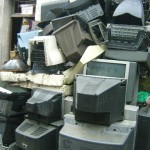
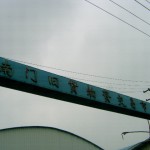
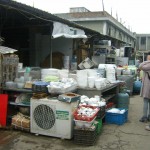
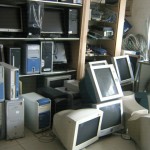
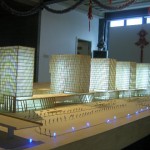



Recent Comments